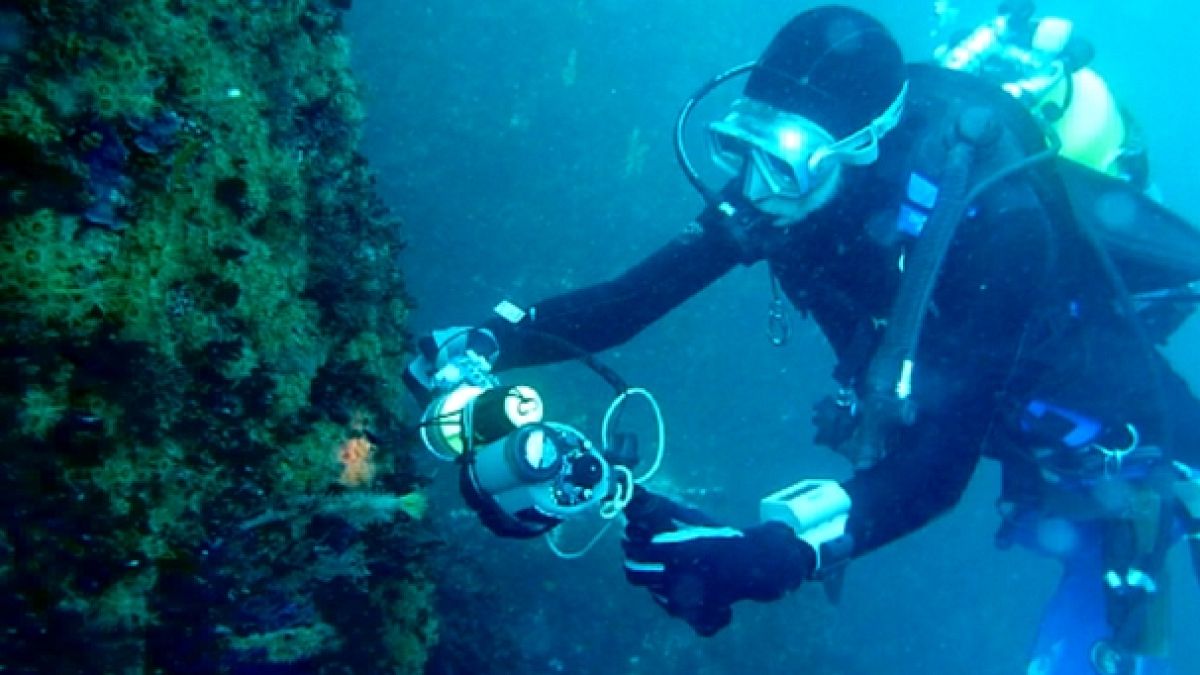Jo Harmelin started diving in 1956. As a scientist he has noticed how the Mediterranean sea has evolved and he remains optimistic.
“Hello I’m Jo Harmelin. Scientific diver in the Port-Cros National Park. I have seen a lot of change over the years. This is my story to Talk Planet for euronews.”
“I was born for the underwater world in the Moroccan Atlantic. I discovered the Mediterranean during my diving training off the island of Corsica in San Florent. I was amazed by this clear sea, extraordinarily, calm without any big swells.
“I had the chance to pursue a career as a marine biologist and I have dived throughout my career. There are a lot of small changes that have gradually become big changes elsewhere.
“The first signs were the arrival of fish in our region in the north of the Mediterranean. This is the coldest region of the sea and fish usually come from the south. We noticed the increase in fish levels before the recorded increases in temperature.
Underwater pictures courtesy Gilles Esposito (Parc National Port-Cros), Phillipe Mathieu
“For example, the Grouper fish, which weren’t bred in all the north of the Mediterranean, started to breed at the end of the 1990s.
“The reason for this is because Groupers need the water to be a certain temperature in the summer, to revive their libidos.
“When we dive, we can see a display of greenery which covers the rocks with green alga known as Caulerpa Racemosa.
“These are an introduced species which are usually found in the south of Australia. Now, they’re part of the local landscape.
“It is a global problem, the globalisation of some species who travel and then begin to dominate the landscape.
“The Barracuda is a species which is part of the scenery of Port-Cros, there is a large bank which revolves around the Gabinière where we dive. They’re everywhere now. It is not invasive though, some species that enter can integrate.
“The Mediterranean is friendly and not just for people, it can also be welcoming for marine organisms. Me, I pretend that the sea hasn’t been colonised. Nothing is set under water, like in life, nothing’s fixed. The communities evolve naturally but also they evolve with the events where man plays a role.”
